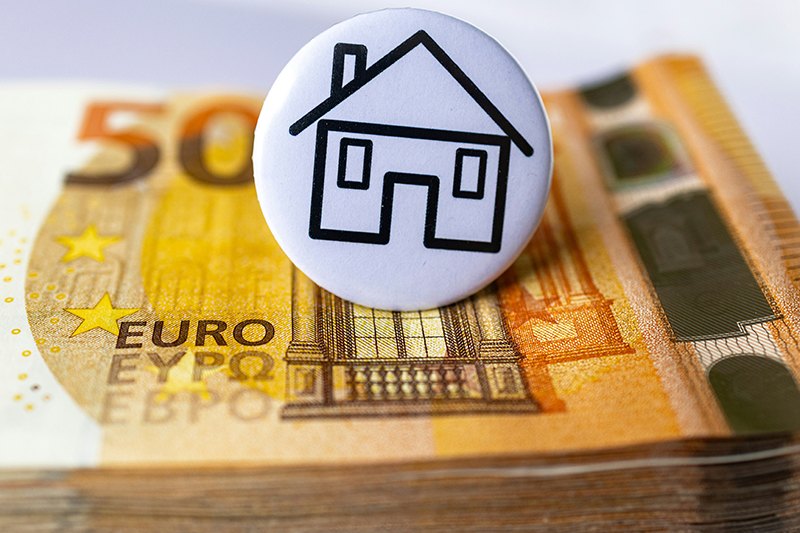
Cost of Living in Marbella
Alexey | · 14 min. read
Marbella has established itself as a premier destination not just for tourists but also for expatriates seeking a new home. It surely is a compelling choice for people contemplating relocation. However, making such a momentous decision requires a comprehensive understanding of the cost of living in this enchanting locale.
This extensive guide aims to provide an in-depth analysis of various aspects related to living in Marbella, from housing to transportation, groceries, healthcare, and beyond. Whether you are planning a permanent move or an extended stay, the insights, tips, and resources offered here will be invaluable in helping you make informed choices and enjoy a smooth transition into life in Marbella.
Why Live in Marbella
Nestled along Spain’s stunning Costa del Sol, Marbella has become a magnet for expats seeking the perfect blend of luxury and laid-back Mediterranean charm. However, before packing your bags, it’s essential to consider one crucial factor: the cost of living in Marbella. While the city’s appeal is undeniable, understanding how far your budget will stretch is key to ensuring your transition is smooth and stress-free.
The Marbella Lifestyle: Mediterranean Living at Its Best
Marbella’s allure begins with its unbeatable climate—boasting over 300 days of sunshine each year. This vibrant city perfectly balances relaxation and activity, offering a bustling social scene that ranges from beachfront yoga sessions to exclusive nightlife. Expats can enjoy a wealth of world-class amenities, from pristine beaches and championship golf courses to luxury spas and gourmet dining.
Beyond the glitz, Marbella fosters a warm and welcoming community. With expats from all corners of the world calling Marbella home, it’s easy to find like-minded individuals, whether through social clubs, international schools, or community events. This cultural diversity adds a unique richness to everyday life, making Marbella a truly global yet distinctly Mediterranean destination.
Balancing Luxury with Practicality
While Marbella is often associated with high-end living, it also caters to a variety of lifestyles. Families will appreciate the abundance of international schools and kid-friendly activities, while retirees can savor a slower pace of life in serene neighborhoods. For those seeking luxury, Marbella delivers in spades, with exclusive properties, designer shopping, and elite services.
Yet, what sets Marbella apart is its ability to blend luxury with practicality. You can enjoy top-tier amenities while still finding affordable options to suit your needs. This balance makes Marbella not just a dream destination but a realistic choice for many expats—provided they have a clear understanding of the cost of living in Marbella.

The Cost of Living in Marbella
Living in Marbella offers a unique blend of luxury and practicality, but understanding the financial aspects of life in this Mediterranean haven is essential for anyone considering a move. The cost of living in Marbella Spain can vary significantly depending on lifestyle choices, family size, and personal priorities, yet it remains a highly sought-after destination for expats seeking the best of both worlds.
From housing and utilities to dining out and healthcare, it’s important to have a clear picture of what you can expect to spend. Whether you’re drawn to Marbella for its sun-drenched beaches, vibrant social scene, or the promise of an improved quality of life, budgeting effectively ensures that you can fully embrace everything the city has to offer.
Breaking Down the Numbers: What to Expect
- Housing: Renting vs. Buying and associated costs
- Utilities and Internet: Monthly essentials for expat households
- Food and Dining: Grocery shopping and dining out expenses
- Transportation: Public transport, car ownership, and fuel costs
- Healthcare: Public and private healthcare options for expats
- Education: Costs for families with children, including international schools
- Leisure and Miscellaneous Expenses: Entertainment, shopping, and unexpected costs

Housing: Renting vs. Buying and associated costs
Among the most significant expenses you will encounter when relocating to Marbella are housing costs. The city offers a diverse range of options to suit varying preferences and budgets. Rental prices can fluctuate considerably based on the location, type of property, and available amenities.
Typically, a one-bedroom apartment within the city center could set you back between €1,000 and €1,500 per month. If you venture outside the bustling city center, rental prices are slightly more affordable, ranging from €800 to €1,200 per month. For those interested in purchasing property, prices per square meter can vary dramatically depending on the area and specific features of the property, generally falling between €2,500 and €6,000.

Utilities and Internet: Monthly essentials for expat households
Beyond the cost of housing, utilities form another crucial component of the monthly expenditure for residents of Marbella. Basic utility costs, covering electricity, heating, cooling, water, and garbage collection, are typically in the range of €100 to €200 per month for an average apartment. These costs can vary based on the size of the property and personal usage patterns. In addition to these essentials, internet and mobile phone services are reasonably priced, generally costing between €40 and €70 per month. You'll need to consider choosing reliable service providers for these utilities to ensure a seamless living experience.
Some notable utility service providers in Spain include Endesa, which is a leading electricity provider recognized for its extensive service coverage and customer support. For internet and mobile phone services, Movistar offers a variety of plans catering to different needs, making it a popular choice among expats. Similarly, Vodafone provides competitive packages for both internet and mobile services, ensuring that you stay connected in your new home.

Food and Dining: Grocery shopping and dining out expenses
The cost of groceries and dining in Marbella can vary widely based on individual preferences and lifestyle choices. If you prefer cooking at home, you can expect to spend between €150 and €300 per month on groceries for a single person. This estimate will naturally increase for families or those with specific dietary preferences. The local markets and supermarkets such as Mercadona, one of the largest supermarket chains in Spain, offer a wide range of products at competitive prices. For a more diverse selection of local and international products, you might consider shopping at El Corte Inglés, known for its high-quality offerings.
Dining out is an integral part of the culture in Marbella, providing an opportunity to indulge in the rich culinary traditions of the region. Mid-range restaurants typically offer meals that cost around €10 to €25 per person, making dining out affordable for most. For those inclined towards gourmet experiences, Marbella boasts an array of upscale restaurants where a single meal can cost over €100.
To explore dining options and find the best spots, check out our guide to the best restaurants in Marbella here.

Transportation: Public transport, car ownership, and fuel costs
Transportation in Marbella is versatile and offers various options to cater to different needs. Public transportation primarily consists of buses, with a one-way ticket priced around €1.20 and a monthly pass costing roughly €40. The main bus service provider in the area is Avanza Bus, known for its reliability and extensive network. For those who prefer taxis, fares start at €3 and increase based on distance traveled, providing a convenient but sometimes costly alternative to public transportation.
If you enjoy the flexibility of having your own vehicle, renting a car in Marbella can cost anywhere from €200 to €500 per month, depending on the type of car and rental terms. Kayak offers a wide selection of car rental options, ensuring that you find something that suits your needs and budget. Additionally, if you prefer an eco-friendly mode of transport, Marbella is a bike-friendly city with several cycling paths, making it a viable option for daily commutes and leisure rides.
For more detailed information on public transportation options in Marbella, including bus routes, schedules, and tips for getting around the city efficiently, check out our comprehensive guide to Marbella's public transportations options.

Healthcare: Public and private healthcare options for expats
Healthcare is a vital consideration for anyone planning to move to Marbella. Spain offers a dual healthcare system, comprising both public and private healthcare facilities. Public healthcare, managed by the Spanish Ministry of Health, is generally accessible and affordable. However, many expatriates prefer private health insurance due to shorter waiting times and additional services. The cost of private health insurance can vary significantly, generally ranging from €50 to €200 per month, depending on the coverage level and the insurance provider.
For those seeking detailed information about public healthcare services, the official website of the Spanish Ministry of Health is a valuable resource. If you are considering private insurance, Sanitas is a leading provider in Spain, known for its comprehensive health plans and customer service. Another excellent option is Adeslas, which offers international health insurance plans tailored specifically for expatriates, ensuring that your healthcare needs are met regardless of your location.

Education: Costs for families with children, including international schools
For expatriates moving to Marbella with children, education is a crucial factor to consider. The city is home to several prestigious international schools offering various curricula, including British and American systems. Tuition fees for these schools can vary widely, typically ranging from €5,000 to €20,000 per year, depending on the school and the grade level. The investment in quality education is essential for ensuring that your children receive the best possible learning experience.
Some of the most renowned international schools in Marbella include the International American School of Marbella, which offers an American curriculum designed to cater to students from preschool through to grade 12. Similarly, the English International College follows the British curriculum, accommodating students aged 3 to 18 in a nurturing and academically rigorous environment. Another notable institution is the Swans International School, which provides a multilingual education with a British core curriculum, promoting a diverse and inclusive learning atmosphere.
If you're exploring educational options for your children in Marbella, be sure to check out our guide to Spain's best international schools. This resource provides an overview of top institutions, offering valuable insights to help you choose the right school for your family’s needs and ensure a smooth transition to life in Marbella.

Leisure and Miscellaneous Expenses: Entertainment, shopping, and unexpected costs
Apart from the primary categories of expenses, various miscellaneous costs can affect your monthly budget when living in Marbella. These expenses include personal care, fitness and sports activities, clothing, and entertainment. The cost in these categories can vary widely, typically ranging from €100 to €300 per month, depending on individual preferences and lifestyle choices.
Tips for Settling Down in Marbella
Relocating to Marbella is an exciting journey, but it requires thoughtful preparation to ensure a smooth transition. From navigating the real estate market to planning your budget and settling into the local lifestyle, here’s what you need to know about making Marbella your new home.
Navigating the Real Estate Market
The first step in settling down is finding the right place to live. Marbella offers a diverse range of real estate options, from luxurious beachfront villas to cozy apartments in charming neighborhoods.
- Renting or Buying a Property: For expats testing the waters, renting is often the preferred choice. Look for properties in well-connected areas, such as Nueva Andalucía or Puerto Banús, to enjoy convenience and a lively atmosphere. If you’re ready to make a long-term commitment, buying property in Marbella can be an excellent investment. Consider working with reputable real estate agents who specialize in the local market to ensure a seamless process.
- Key Neighborhoods for Expats: Neighborhoods like Elviria, with its family-friendly vibe, or the Golden Mile, known for luxury living, are popular choices. For those seeking tranquility, areas like Benahavís or La Quinta offer a more serene environment while remaining close to Marbella’s main attractions.
If you're planning your move to Marbella or considering buying property here, our team of real estate professionals is ready to guide you every step of the way. We understand the local market and can help you find the perfect home that fits your needs and budget. Don’t hesitate to reach out to us for expert advice and personalized assistance in making your Marbella dream a reality.
Planning Your Budget Wisely
Understanding the cost of living in Marbella is essential to manage your finances effectively.
- Estimating Monthly Expenses: Your budget will largely depend on your lifestyle choices. Housing, utilities, and food are the biggest components of monthly expenses but don’t forget to account for leisure activities and transportation. A single person might budget around €2,000 per month for a comfortable lifestyle, while families could need €4,000 or more.
- Tips for Saving Money: Take advantage of local markets for fresh produce and affordable groceries. Consider public transport or cycling instead of relying on taxis or renting cars. Dining out at local tapas bars instead of high-end restaurants can also significantly lower your costs without sacrificing quality.
Getting the Essentials Right
Settling down smoothly in Marbella requires attention to practicalities like utilities, healthcare, and building a social network.
- Setting Up Utilities, Healthcare, and Bank Accounts: Start by setting up utilities such as electricity, water, and internet. Reliable providers like Endesa or Movistar make this process straightforward. For healthcare, explore both public and private options, ensuring you have adequate insurance coverage. Additionally, open a Spanish bank account to simplify bill payments and local transactions.
- Building a Local Network and Finding Expat-Friendly Resources: Joining expat communities on platforms like Meetup or Facebook can help you connect with others who’ve been in your shoes. These networks often share valuable tips on navigating local systems and recommend expat-friendly services in Marbella.
By approaching your move with a clear plan, you can enjoy all that Marbella has to offer without the stress of uncertainty. To help guide you through the process of settling into Marbella, we have created comprehensive resources to assist you in making the right decisions. If you’re looking to buy your first home in Marbella, check out our step-by-step guide to the buying process. And once you've made the purchase, don’t miss our tips on what to do after buying a house to ensure a smooth transition into your new home.
Final Thoughts: Is Marbella the Right Choice for You?
Marbella offers an opulent and enjoyable lifestyle, characterized by its stunning beaches, luxurious living standards, and vibrant social scene. However, this appeal comes with associated costs that prospective expatriates must consider. By understanding the costs related to housing, utilities, groceries, transportation, healthcare, education, and social activities, you can accurately budget for life in Marbella.
Key Takeaways:
- Marbella offers a unique blend of luxury and practicality, providing a high standard of living.
- The cost of living in Marbella can vary based on lifestyle choices and personal priorities, but understanding key expenses helps with budgeting.
- Housing, utilities, groceries, and transportation are among the major costs to consider.
- Healthcare and education are important factors for families, while social activities contribute to the city's vibrant atmosphere.
- Marbella's expat community and Mediterranean lifestyle are among its most attractive features, offering an exceptional quality of life.
With the right preparation, Marbella can be more than just a destination—it can become your home.